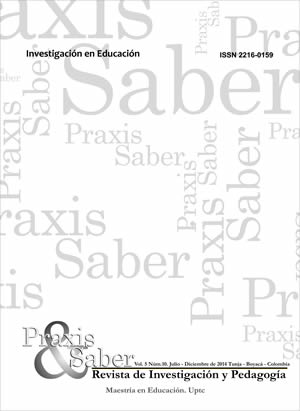Validation of the Instrument ‘Metacognitive Awareness Inventory (Mai)’ With Students in Colombia

Abstract
The object of this study was to adapt and prove the survey referred as ‘Metacognitive Awareness Inventory’ in order to try it out with population in Colombia. This instrument, known as MAI, and created by Schraw &, Denninson in 1994 to identify the metacognitive awareness in subjects, has 52 items distributed in eight categories: declarative knowledge, procedural knowledge, conditional knowledge, planning, organization, monitoring, refinement, and assessment. This survey was applied to 536 students in tenth and eleventh grades at public and private schools in Bogota, through a computer application designed for this study. Information was gathered via web and data were analyzed with the help of the SPSS. The Cronbach’s alpha of the survey ranged 0.94, and from 0.61 to 0.71 for the eight categories. The results allow to conclude that the MAI developed in Colombia is a valid and reliable instrument, which can be useful for further researches aimed at knowing about students’ metacognitive awareness.Keywords
metacognition, metacognitive awareness inventory, validation
References
- AKIN, A.; ABACI, R. & CETIN, B. (2007). 'The Validity and Reliability of the Turkish Version of the Metacognitive Awareness Inventory'. Educational Sciences: Theory & Practice [7, 2, 671-678].
- ALCI, B. & KARATAS, H. (2011). 'Teacher candidates' metacognitive awareness according to their domains and sex'. International Journal of Multidisciplinary Thought [1, 6, 255-263].
- BALCIKANLI, C. (2011). 'Metacognitive Awareness Inventory for Teachers (MAIT)'. Journal of Research in Educational Psychology [9, 3, 1309-1332].
- BROWN, A. (1987). 'Metacognition, executive control, self-regulation and other mysterious mechanisms'. KLUWE W., R. H. (Ed.) Metacognition, motivation and understandin [65-116].
- CAMPO, A. & OVIEDO, H. (2008). 'Propiedades psicométricas de una escala: la consistencia interna. Revista de salud pública [10, 5, 831-839].
- CERVANTES, V. (2005). 'Interpretaciones del coeficiente alpha de Cronbach'. Avances en medición [3, 9-28[.
- CORTINA, J. (1993). 'What is Coefficient alpha?' Journal of Applied Psychology [78, 1, 98-104].
- DOGANAY, A. & DEMIR, O. (2011). 'Comparison of the Level of Using Metacognitive Strategies during Study between High Achieving and LowAchieving Prospective Teachers'. Educationat Sciences: Theory & Practice [11, 4, 2036-2043].
- FLAVELL, J. (1976). Metacognitive Aspects of Problem Solving: The Nature of Intelligence. Hillsdale: N. J. Erlbaum.
- FLAVELL, J. (1979). 'Metacognition and cognitive monitoring- A new area of cognitive–developmental inquiry'. American Psicology [34, 906-911].
- https://doi.org/10.1037/0003-066x.34.10.906
- GULA, F. & SHEHZADB, S. (2012). 'Relationship between metacognition, goal orientation and academic achievement'. Procedia - Social and Behavioral Sciences [47, 1864-1868].
- https://doi.org/10.1016/j.sbspro.2012.06.914
- JARAMILLO, S. & OSSES, S. (2012). 'Validación de un instrumento sobre metacognición para estudiantes de segundo ciclo de educación general básica'. Estudios Pedagógicos [XXXVIII, 2, 117-131].
- https://doi.org/10.4067/S0718-07052012000200008
- JUSI, H.; DENISE, D. & LEONAR, R. (2006). 'Perceived Third-Person Effects and Consumer Attitudes on Prevetting and Banning DTC Advertis'. The Journal of Consumer Affairs [40, 1, 90-116].
- KAPLAN, R. & SACCUZZO, D. (2005). Psychological testing: Principles, applications and issues. Wadsworth: Thomson.
- KLIMENKO, O. & ALVAREZ, J. (2009). 'Aprender cómo aprendo: la enseñanza de estrategias metacognitivas'. Educación y Educadores [12, 2, 11-28].
- MAGNO, C. (2010). 'The role of metacognitive skills in developing critical thinking'. Metacognition Learning [5, 137-156].
- https://doi.org/10.1007/s11409-010-9054-4
- MORALES, P. (2007). Estadística Aplicada a las Ciencias Sociales, La fiabilidad de los tests y escalas. Madrid: Universidad Pontificia Comillas.
- NARANG, D. & SAINI, S. (2013). 'Metacognition and Academic Performance of Rural Adolescents'. Studies on Home and Community Science [7, 3, 167-175].
- Nunnally, J. (1987). Teoría psicométrica. México: Trillas.
- OVIEDO, H. & CAMPO, A. (2005). 'Aproximación al uso del coeficiente alfa de alfa de Cronbach'. Revista Colombiana de Psiquiatría [XXXIV, 4, 2005].
- OZSOY, G. (2011). 'An investigation of the relationship between metacognition and mathematics achievement'. Asia Pacific Educ. Rev. [912, 227-235].
- PARIS, S.; Cross, D. & Lipson, M. (1984). 'Informed Strategies for Learning: A Program to Improve Children's Reading Awareness and Comprehension'. Journal of Educational Psychology [76, 6, 1239-1252].
- https://doi.org/10.1037/0022-0663.76.6.1239
- RAHMAN, F.; JUMANI, N. ; SATTI, M. & MALIK, M. (2010). 'Do metacognitively aware teachers make any difference in students' metacogniton?' International journal of academic research [2, 6, 219-224].
- ROCES, C.; TOURÓN, J. & GONZÁLEZ, M. C. (1995a). 'Motivación, estrategias de aprendizaje y rendimiento de los alumnos universitarios'. Bordón [47, 1, 107-120].
- SCHRAW, G. & DENNISON, R. (1994). 'Assessing metacognitive awareness'. Contemporary Educational Psychology [19, 460-475].
- https://doi.org/10.1006/ceps.1994.1033
- SCHRAW, G. & MOSHMAN, D. (1995). 'Metacognitive Theories'. Educational Psychology [7, 351-371].
- https://doi.org/10.1007/bf02212307
- SEZGIN, D. (2013). 'A comparison of metacognitive awareness levels of future elementary teachers in Turkey and USA'. Educational Research and Reviews [8, 6, 277-288].
- SPERLING, R.; HOWARD, B.; MILLER L. & MURPHY, C. (2002). 'Measures of Children's Knowledge and Regulation of Cognition'. Contemporary Educational Psychology [27, 51–79].
- https://doi.org/10.1006/ceps.2001.1091
- STEWART, P.; COOPER, S. & MOULDING, L. (2007). 'Metacognitive Development in Professional Educators'. The Researcher [21, 1, 32-40].
- STREINER, D. (2003). 'Being Inconsistent About Consistency: When Coefficient Alphas Does and Doesn't Matter'. Journal of personality assessment [80, 3, 217-222].
- https://doi.org/10.1207/S15327752JPA8003_01
- TULVING, E. & MADIGAN, S. (1970). 'Memory and verbal learning'. Annual Review of Psycology [21, 438-476].
- https://doi.org/10.1146/annurev.ps.21.020170.002253
- ULAS, H.; KOLAÇ, E. & SEVIM, O. (2011). 'Metacognition awareness levels of turkish teacher candidates'. e-Journal of New World Sciences Academy [6, 1, 121-134].
- YOUNG, A. & FRY, J. (2008). 'Metacognitive awareness and academic achievement in college students'. Journal of the Scholarship of Teaching and Learning [8, 2, 1-10].